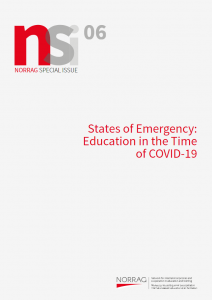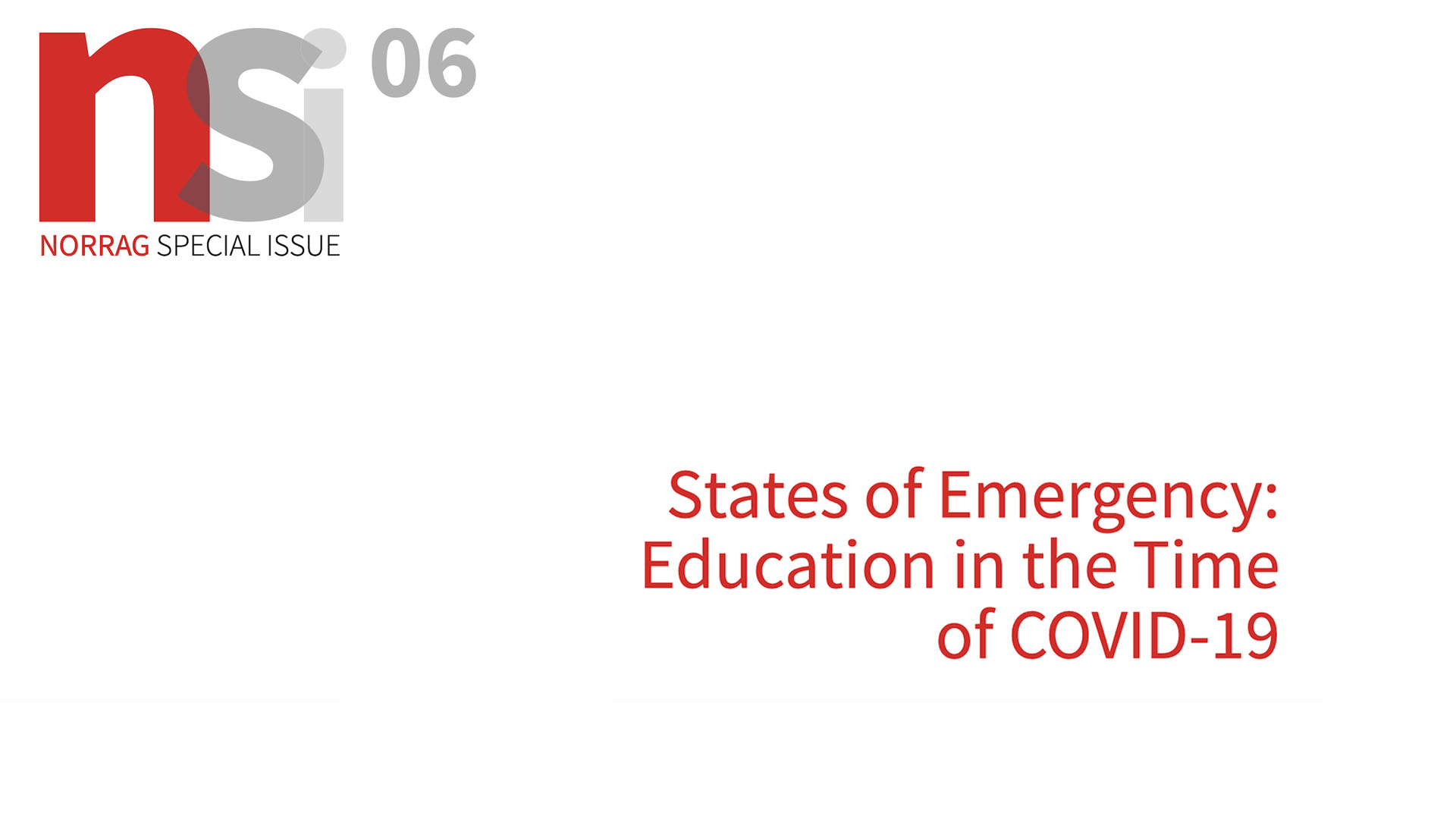NSI 06: States of Emergency: Education in the Time of COVID-19
 The sixth edition of NORRAG Special Issue (NSI), released in October 2021, is entitled “States of Emergency: Education in the Time of COVID-19.” NSI 06 seeks to conceptualise the multiple emergencies brought about by COVID-19, which presents the world not only with a biological and health emergency but also a political, economic and social emergency intertwined. Read in its entirety, this NORRAG Special Issue highlights the ways in which these emergencies in education are interconnected.
The sixth edition of NORRAG Special Issue (NSI), released in October 2021, is entitled “States of Emergency: Education in the Time of COVID-19.” NSI 06 seeks to conceptualise the multiple emergencies brought about by COVID-19, which presents the world not only with a biological and health emergency but also a political, economic and social emergency intertwined. Read in its entirety, this NORRAG Special Issue highlights the ways in which these emergencies in education are interconnected.
NSI 06 is available in English, Arabic, French, Russian, Spanish and Chinese.
The initial idea for NSI 06 grew out of UCL Institute of Education’s Centre for Education and International Development’s (CEID) blog series entitled Education in the Time of COVID-19 which started in April 2020. Two webinars were organised following the blog series including a KIX EAP Webinar held in April 2021 titled “What has COVID-19 done to education and research?”, which featured some of the authors who have contributed to the NORRAG Special Issue.
NSI 06 is guest-edited by Associate Professor Will Brehm, Professor Elaine Unterhalter and Professor Moses Oketch, UCL Institute of Education, United Kingdom. It consists of 29 articles in 6 parts:
- Part 1 focuses on the site of Inequalities. Indeed, it has become almost a truism to say that the pandemic revealed and furthered inequalities globally, nationally and locally.
- Part 2 focuses on the site of Technology. another major area often discussed in the nascent literature on COVID-19 and education.
- In Part 3, the focus is on States. How and to what effect has the state been reconfigured during the pandemic?
- Part 4 widens the focus to one of the tenets of modernity critiqued by Sloterdijk: Progress.
- Part 5 looks at the pandemic and its impact on education from the lens of Affect.
- Finally, in Part 6, the NORRAG Special Issue turns to the next emergency already with us. This section is called Nature.
The NSI Series aims to expand the debate and foster dialogue, bridge the gap between theory and practice, as well as stimulate new research, advocacy and policy innovation in international education development.

